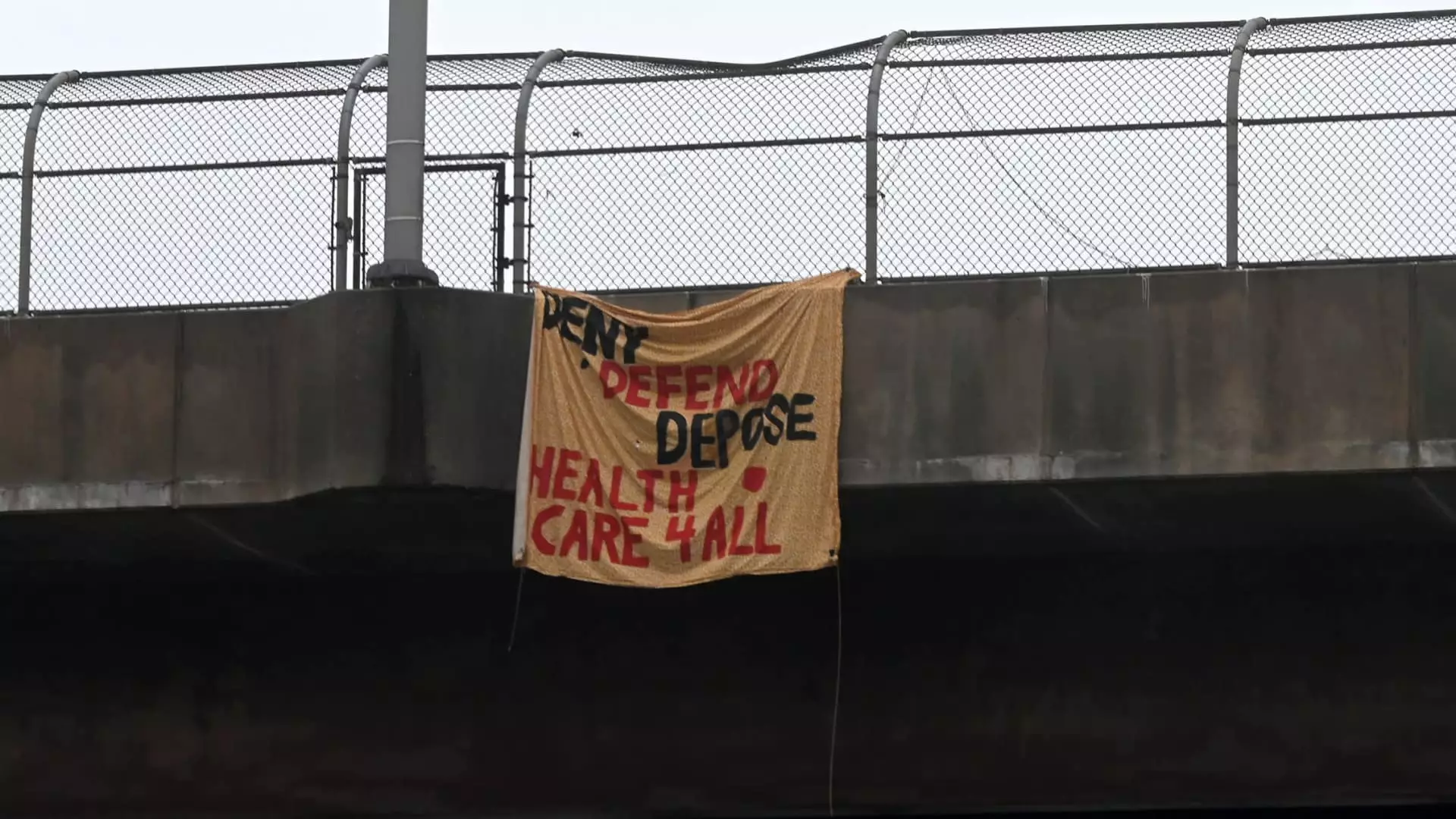In the world of finance, the health insurance sector has recently come under scrutiny, exacerbated by a tragic event that has sent ripples through the stock market. The shooting of Brian Thompson, the CEO of UnitedHealth Group’s insurance arm, has not only shocked the public but has also raised fundamental questions about the healthcare industry and the role of insurance companies within it. This occurrence has led to a significant downturn in insurance stocks, collectively plummeting over 6% since the incident.
The immediate financial fallout following the high-profile tragedy can be understood through a lens of investor psychology. Major players such as UnitedHealth, CVS Health, and Cigna faced sharp declines as they formed part of the broader healthcare insurance landscape. With Thompson’s untimely passing while on his way to an investor day, the circumstances surrounding this shooting have ignited a fierce debate about the ethics and operations of the health insurance industry. Analysts have noted that this incident is not just an isolated event but rather a tipping point that has resurfaced longstanding grievances against these corporations.
Jared Holz, a health-care equity strategist at Mizuho, articulated a common sentiment among investors, questioning the attractiveness of insurance stocks amid what is perceived as a “renewed rhetoric” targeting the business models of these insurers. The narrative emerging from this crisis underscores a growing public backlash towards insurance companies, many of which are already viewed critically due to their frequent denial of claims or the complexity of navigating insurance provisions.
What is striking about the public reaction to Thompson’s murder is the apparent sympathy expressed online towards the alleged shooter, Luigi Mangione. Mangione, a self-described critic of the healthcare system, supposedly voiced his frustrations through handwritten letters implicating the industry as “parasites” profiting at the expense of patients. This perspective comes from a collective frustration among Americans who feel marginalized by healthcare policies that often prioritize profit margin over patient care.
Many citizens have shared their own stories of denied claims and complex billing systems, revealing a deeper crisis in how healthcare is managed in the United States. The narrative has often painted insurance companies as the villains in a tragic drama, blaming them for exacerbating healthcare costs. While this may not be new, the combination of a high-profile crime and its resulting media frenzy has resurfaced these discussions into the public consciousness.
Investor hesitation reflects a broader apprehension regarding the future profitability of these companies. The critical eye cast on their operational methodologies raises the question of sustainability in an environment where public trust is on the decline.
Despite the current turmoil in the market, analysts like Holz caution that the sell-off might not indicate a long-term trend for these stocks but rather a reaction to a specific incident and its aftermath. It is essential to dissect whether the mounting negative sentiment will have lasting implications on the business practices of health insurers. Holz asserts that no material changes are likely forthcoming in response to the fallout from the incident. This reflection reveals a stubborn aspect of corporate culture where profitability consistently triumphs over reform, especially amid crises.
Prosecutors have charged Mangione with serious offenses, including second-degree murder, and he remains in custody as investigations continue. There are still numerous facets of his motivations that law enforcement is unraveling. As these investigations progress, they may yield additional insight into the personal and societal implications of his extreme actions. Even with a public outcry against healthcare giants, systemic shifts within the insurance industry remain to be seen.
Ultimately, the incident surrounding Brian Thompson has spotlighted both the volatility of insurance stocks and the underlying societal frustrations directed towards the healthcare industry. The intersection of personal tragedy and broader economic implications presents a compelling case for investors, healthcare professionals, and policymakers to advocate for change. As the investigation unfolds and public sentiments evolve, the insurance landscape may face transformative pressures that compel a reassessment of practices that have long drawn criticism. Whether this will lead to actionable reform or simply serve as a cautionary tale for corporate governance remains a pivotal question in the ongoing discourse surrounding the American healthcare system.

